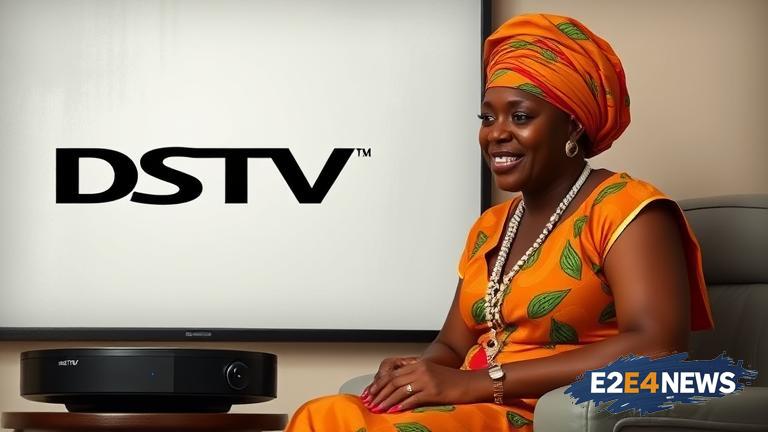The recent comments made by Yaa Jantuah, a Ghanaian media personality, have ignited a heated discussion about the pricing strategy of DSTV, a popular satellite television service in Africa. According to Jantuah, the high costs of DSTV subscriptions do not match the quality of content offered, leaving many customers feeling frustrated and ripped off. She argued that the company’s pricing model is unfair, especially considering the limited selection of channels and programs available to Ghanaian subscribers. Jantuah’s remarks have resonated with many Ghanaians who feel that DSTV is taking advantage of its dominant position in the market to charge exorbitant prices. The controversy surrounding DSTV’s pricing has been ongoing for years, with many customers complaining about the lack of flexibility in the company’s subscription plans. Despite the introduction of new packages and promotions, many subscribers still feel that they are not getting value for their money. The issue is further complicated by the fact that DSTV operates in a relatively unregulated market, with little oversight from government agencies. As a result, the company has been able to maintain its pricing power, even in the face of growing competition from other TV services. However, Jantuah’s comments may mark a turning point in the debate, as they have sparked a national conversation about the need for greater transparency and accountability in the TV industry. Many Ghanaians are now calling for DSTV to review its pricing strategy and offer more affordable options to customers. Others are advocating for the introduction of new regulations to protect consumers and promote competition in the market. The Ghanaian government has also been urged to take a closer look at the TV industry and ensure that companies like DSTV are operating in the best interests of consumers. In response to the criticism, DSTV has defended its pricing model, citing the high costs of acquiring and distributing content to subscribers. However, this explanation has done little to appease angry customers, who feel that the company is more focused on maximizing profits than providing value to its subscribers. As the debate continues to rage, it remains to be seen whether DSTV will revise its pricing strategy or face further backlash from customers and regulators. One thing is certain, however: the controversy surrounding DSTV’s pricing has highlighted the need for greater transparency and accountability in the TV industry, and it will be interesting to see how the company responds to these concerns in the coming months. The issue has also sparked a wider discussion about the role of TV in Ghanaian society and the impact of subscription-based services on consumers. Many experts believe that the TV industry needs to evolve to meet the changing needs of consumers, who are increasingly looking for more flexible and affordable options. In this context, the criticism of DSTV’s pricing strategy may be seen as a wake-up call for the company to rethink its business model and prioritize the needs of its subscribers. Ultimately, the outcome of this controversy will depend on the actions of DSTV and the response of regulators and consumers. If the company is able to address the concerns of its subscribers and provide more value for money, it may be able to restore trust and credibility with its customers. However, if it fails to do so, it risks facing further backlash and potentially even losing market share to competitors. The situation is being closely watched by industry analysts, who are eager to see how the controversy will play out and what implications it may have for the TV industry as a whole. As the story continues to unfold, one thing is clear: the criticism of DSTV’s pricing strategy has sparked a long-overdue conversation about the need for greater transparency and accountability in the TV industry, and it will be interesting to see how the company responds to these concerns in the coming months.





